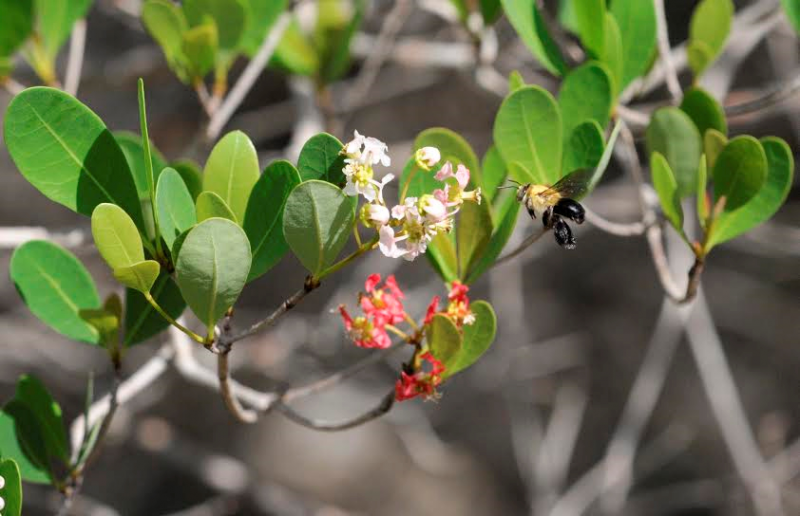Miami cold spell has chilling effect on tropical bees

A rare cold spell in Miami, that saw temperatures dip as low as 35 degrees, had damaging effects on tropical bees in South Florida.
The extreme cold spell hit in 2010, sending temperatures to record lows with temperatures remaining below 50 degrees for several consecutive days. Biological sciences researchers at FIU seized the rare opportunity to observe the impacts of such an extreme weather event on South Florida's pollinators. What they found is that bees native to the sub-tropics, including Florida, weathered the cold snap. But non-native bees, recently introduced from tropical climates, were more sensitive to the colder temperatures. Many died, and their populations took three to four years to recover. The findings were published May 5 in the journal Ecosphere.
"The findings show extreme cold spells are important climate change-related events that can have strong impacts on the distributions and abundances of tropical species," said Jason Downing, lead author of the study and Ph.D. student in the Department of Biological Sciences. "Capturing the impacts of these rare extreme cold weather events, in addition to gradual warming trends, are necessary to best predict species responses to climate change in the future."
While most studies examining climate events focus on individual species, this study examined the impacts on multiple interacting species, providing a more realistic assessment of the potential impacts of climate change.
"Disruptions in the interactions between species can alter community structure and dynamics, changing entire ecosystems," Downing said. "Understanding how climate change influences these relationships is urgent and necessary for developing management plans that mitigate biodiversity loss."
Downing points out that with global warming trends, scientists expect frost lines to move poleward, possibly resulting in fewer extreme cold events in the subtropics. This could accelerate the expansion of some species from the tropics into temperate zones.
Immediately following the cold snap, native bees showed an increase in the number of visits to plants in the flowering season, indicating minimal impacts or a fast recovery. The non-native bees originated from Central America and were only recently introduced to southeast Florida. Both the non-native and native oil-collecting bees are the primary pollinators for Florida's Malpighiaceae plants, a family of plants made up of more than 1,300 species, as well as the endangered cigar orchid.
Non-native, oil-collecting bees were not the only victims of the 2010 cold spell. The weather event caused reductions or mortality of many non-native species, such as fish, iguanas, parrots and pythons, and native species, such as corals, crocodiles, manatees, snook and tarpon.
More information: Differential impacts from an extreme cold spell on subtropical vs. tropical specialist bees in southern Florida, DOI: 10.1002/ecs2.1302 , onlinelibrary.wiley.com/doi/10.1002/ecs2.1302/full
Journal information: Ecosphere
Provided by Florida International University


















